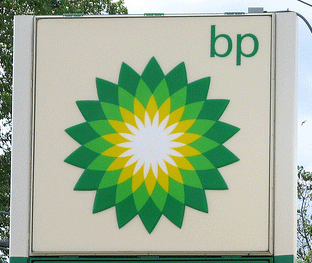
Flickr user <a href= "http://www.flickr.com/photos/thewalt/2544342582/">The Walt</a>, used under Creative Commons license
BP appears to be back pedaling on its vaunted commitment to alternative energy, renewing old skepticism about what the company formerly known as British Petroleum really stands for.
BP recently shuttered its alternative energy headquarters in London and plans to slash its $1.4 billion alternative energy budget by as much as 64 percent this year, the Guardian reports. Its clean energy boss, Vivienne Cox, is officially stepping down to spend more time with her family, though some industry insiders tell the paper that she’s frustrated over the business being downgraded in importance.
Though BP has long led the oil industry in acknowleging climate change and investing in renewables, alternative energy investments make up only 5 percent of its portfolio. “Even its support of Kyoto is pilloried as disingenuous,” Paul Roberts wrote in this magazine in 2006. “BP happens to be overstocked in reserves of natural gas, a fuel that emits less CO2 than coal or oil, and whose price would rise steeply if society was forced to cut carbon emissions.”
In 2006, BP pleged to triple its production of solar panels over the next three years. Yet this April, the company closed down solar power manufacturing plants in Spain and the US, with the loss of 620 jobs. Tony Hayward, BP’s new chief executive, has publicly questioned whether solar would ever become cost competive with fossil fuels, even as companies like BrightSource Energy are winning big contracts and rapidly closing the cost gap. Instead, BP has shifted its focus towards exploiting Canada’s controversial tar sands, and to biofuels research. Last year it began funding Berkeley’s Energy Biosciences Institute in a deal brokered by professor Steven Chu, now Obama’s Energy Secretary. The Waxman-Markey climate bill provides major subsidies for the fuels.
To BP’s credit, its committment to greenwashing appears to be slipping too. It no longer uses the “Beyond Petroleum” tag and nor brags atop the New Republic‘s environment blog that the site is “Powered by BP.” Perhaps the company should be called Basically Prosaic.















